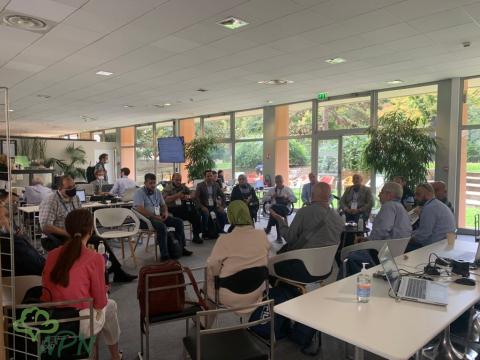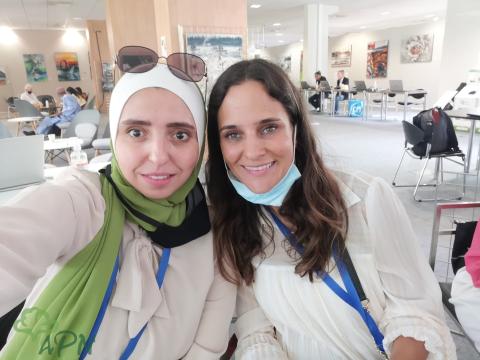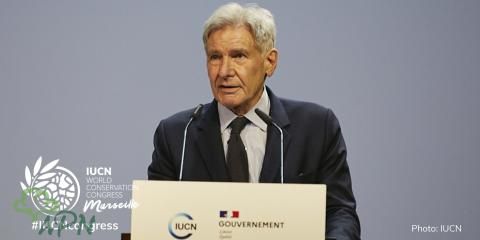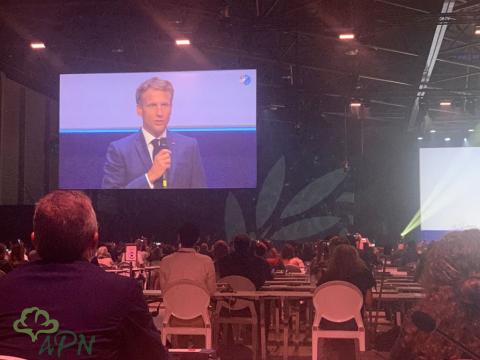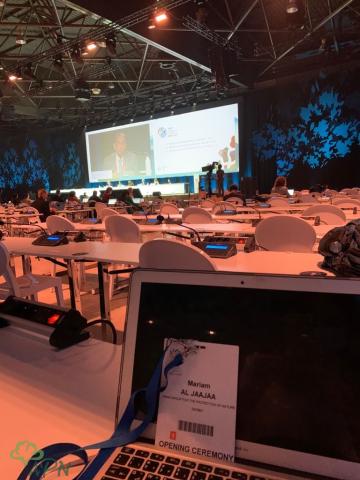
Mariam Al Jaajaa, General Manager of The Arab Group for the Protection of Nature, participated in events of Congress of International Union for Conservation of Nature (IUCN) in Marseille, France, which takes place every four years (September 3-10, 2021).
International Union for Conservation of Nature (IUCN) is the largest international gathering, concerned with the protection of nature, with more than 1,400 members from governments, governmental institutions, and civil society organizations. It also has an advisory observer position at the United Nations.
Al Jaajaa participated in several side events, seminars and dialogues held on the margins of Congress, which passed a number of resolutions and included a vote by The Public Authority on the election of a new President and Council for IUCN. It also discussed plans for economic recovery after the Corona pandemic and discussed "an ambitious new global biodiversity strategy" and "nature's contribution against climate change."
During her interventions, Al Jaajaa stressed on the importance for the new presidency to recognize the region's priorities and the violations of the Israeli occupation against natural resources and environment. She also called for the need to strengthen the partnership between the IUCN and the relevant associations.
The General Manager of “APN” also called for the task of activating taken resolutions as a priority on the agenda of the IUCN, pointing out that the IUCN had made resolutions about some environmental violations and approved the payment of compensation from the offenders, but these resolutions were not yet implemented. She mentioned the resolutions of The Arab Group for the Protection of Nature, which APN sought to endorse. She also prepared two proposals for agricultural projects in the presence and participation of the representative of IUCN, but they remained in the theoretical phase, and were not further implemented. The resolutions carried the figures (3.046 and CCGR4.MOT119), under which the Israeli occupation was criminalized for its environmental violations in the region and obliged to pay compensation, there was also the call of protecting the natural resources during wars.

